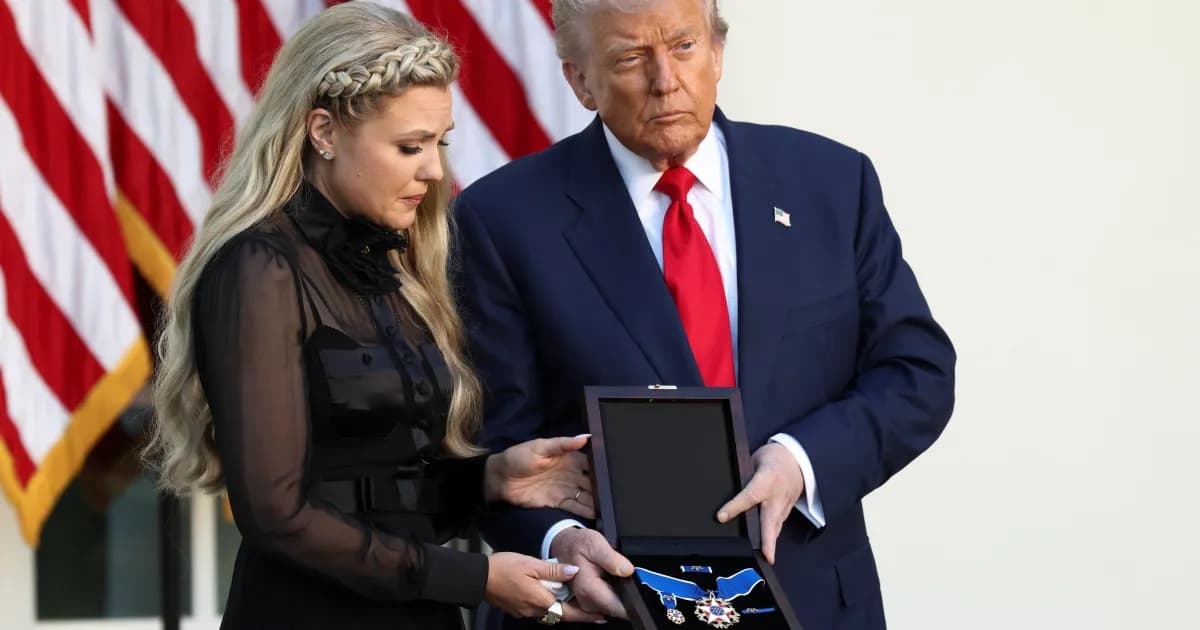We're loading the full news article for you. This includes the article content, images, author information, and related articles.
The United States has revoked the visas of six foreign nationals for social media comments deemed critical or celebratory of the assassination of conservative activist Charlie Kirk, sparking debate on free speech and immigration policy.

The United States Department of State announced on Tuesday, October 14, 2025, that it has revoked the visas of six foreign nationals. The action was taken in response to social media comments made by these individuals that were critical of or appeared to celebrate the assassination of American conservative activist Charlie Kirk. Kirk was fatally shot on Wednesday, September 10, 2025, while speaking at Utah Valley University in Orem, Utah.
In a statement posted on X (formerly Twitter), the US State Department asserted, "The United States has no obligation to host foreigners who wish death on Americans." The department further indicated that it "continues to identify visa holders who celebrated the heinous assassination of Charlie Kirk."
The six individuals whose visas were revoked are nationals of Argentina, Brazil, Germany, Mexico, Paraguay, and South Africa. While their names were not publicly disclosed, screenshots of their posts shared by the State Department made it possible to identify at least two of them.
One of the cited comments, reportedly from an Argentine national, stated that Kirk "devoted his entire life spreading racist, xenophobic, misogynistic rhetoric" and "deserves to burn in hell." Another post, attributed to a South African national, allegedly mocked Americans grieving Kirk, saying "they're hurt that the racist rally ended in attempted martyrdom" and alleging "he was used to astroturf a movement of white nationalist trailer trash!"
This move by the Trump administration follows a broader trend of increased scrutiny of social media activity by foreign nationals. Since 2019, the State Department has required visa applicants to share their social media handles. More recently, in June 2025, a provision was added requiring student visa applicants to make all their social media accounts public for government vetting.
The administration has previously revoked thousands of student visas, with a significant number reportedly cancelled due to support for pro-Palestine protests on university campuses. In April 2025, the US Citizenship and Immigration Services (USCIS) announced that it would consider "antisemitic activity" on social media as grounds for denying immigration benefit requests.
US immigration law grants the government broad authority to deny or revoke visas. The State Department's actions are based on the premise that the US has no obligation to host individuals whose online expressions are perceived as hostile or celebratory of violence against Americans. Secretary of State Marco Rubio and Deputy Secretary of State Christopher Landau have both publicly stated their intent to take action against such comments.
Critics, however, argue that these actions raise significant concerns about freedom of speech, even for non-citizens. While the First Amendment primarily protects US citizens, the application of such stringent social media vetting to visa holders and applicants has been questioned by civil rights groups.
The State Department's announcement has been met with mixed reactions. Supporters of the administration view it as a necessary measure to protect national security and uphold American values. Conversely, civil liberties advocates and some academic institutions have expressed concerns about potential overreach and the chilling effect on free expression.
The policy of revoking visas based on social media comments carries several implications. For individuals, it can lead to immediate deportation or denial of entry into the US. For the US, it risks alienating foreign nationals and could be seen as a departure from principles of free speech, potentially impacting academic and cultural exchange programs. The use of artificial intelligence in vetting social media content, as reportedly employed by the Trump administration, also raises questions about accuracy and bias.
The exact criteria used by the State Department to determine what constitutes "wishing death on Americans" or "celebrating" an assassination remain somewhat ambiguous. The lack of named individuals in the State Department's public announcement also limits the ability to independently assess the context of the alleged comments. Furthermore, the extent to which these policies align with international norms regarding freedom of expression for non-citizens is a subject of ongoing debate.
Charlie Kirk was assassinated on Wednesday, September 10, 2025, at approximately 12:23 PM Mountain Daylight Time (MDT) while speaking at Utah Valley University. The State Department announced the visa revocations on Tuesday, October 14, 2025.
Observers will be watching for further details on the implementation of these social media vetting policies, including any legal challenges that may arise. The impact on international student enrollment and academic freedom in the US will also be a key area of focus. Additionally, the ongoing discussion about the balance between national security concerns and freedom of speech in the digital age is expected to continue.
Keep the conversation in one place—threads here stay linked to the story and in the forums.
Sign in to start a discussion
Start a conversation about this story and keep it linked here.
Other hot threads
E-sports and Gaming Community in Kenya
Active 9 months ago
The Role of Technology in Modern Agriculture (AgriTech)
Active 9 months ago
Popular Recreational Activities Across Counties
Active 9 months ago
Investing in Youth Sports Development Programs
Active 9 months ago